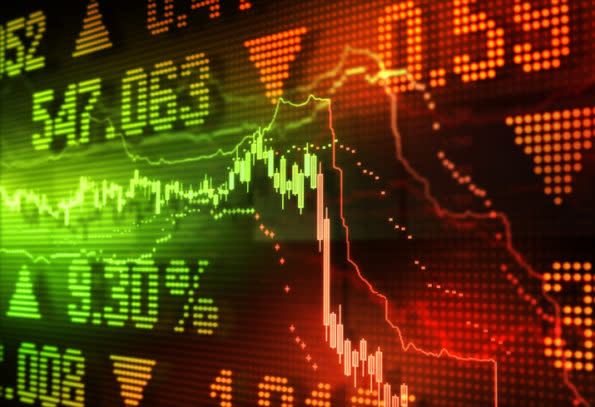5 Tips That Will Help You Avoid the Next Market Crash

Last month, the TSX Composite lost 10% of its value in less than two weeks.
Markets tend to fall a lot faster than they go up, so it’s important to stay on your toes when it comes to these kinds of things — particularly when you consider that we are now into the ninth year of the current bull market, which started way back in 2009.
That’s a very long time for a bull market by historical standards, and given last month’s quick sell-off, many investors now find themselves peeking over their shoulders to make sure they don’t miss whatever sets off the next market collapse.
Here are five tips to watch out for, so you can be quick to act and avoid losing money in the next crash, which could very likely end up being worse than the one we just experienced.
Rising commodity prices
Many experts have suggested that the rising commodity and energy prices have been the root cause behind many of the recent economic recessions.
Now with the U.S. intent on pursuing a weak dollar policy, which may in fact serve to stimulate energy prices higher — good for those operating out of the Canadian oil sands, such as Suncor Energy Inc. (TSX:SU)(NYSE:SU) and Baytex Energy Corp. (TSX:BTE)(NYSE:BTE), for example, but also causing inflation and reducing consumer purchasing power for the typical Canadian consumer.
That scenario wouldn’t be desirable for the economy or the stock market.
Consumer confidence
Consumer confidence is a leading statistical indicator that reports how optimistic the average taxpayer is for the upcoming year.
When confidence is high, people are willing to spend more on bigger ticket purchases, like homes financed by lenders like Bank of Nova Scotia (TSX:BNS)(NYSE:BNS) and Home Capital Group Inc. (TSX:HCG), and autos that include component parts made by the likes of Magna International Inc. (TSX:MG)(NYSE:MGA) and Linamar Corporation (TSX:LNR).
But when consumer confidence is declining, it means people are more likely to delay on those types of purchases, and that can have deflationary pressures — definitely not good for the markets.
Central bank policies
Central bank policies are very important for investors to be aware of, because central banks like the Bank of Canada or the Federal Reserve in the U.S. set the national policy rate, which is the biggest factor driving the cost to borrow money.
When central banks employ “hawkish policies,” like raising interest rates, it reduces the supply of money in the economy, which tends to depress economic activity.
Housing starts
Purchasing a home is often the biggest investment a person will make in their life.
Housing starts are important, because they’re tied to consumer confidence and interest rates — two of the factors discussed above.
Like consumer confidence, housing starts are considered to be another leading indicator, meaning that they tend to “turn” before the economy does.
Market averages
The last thing to watch for is the market itself.
Many were caught off guard by the 2008-09 market crash, but those were watching the averages closely would have seen it coming.
The 200-day moving average has long been one of the bellwether indicators of the market’s health.
A break of the market below its 200-day average is certainly something that investors should be aware of.
More reading
Toronto-Dominion Bank vs. Bank of Nova Scotia: Which Stock Is Good for Your TFSA?
Which Banks Should You Add to Your TFSA as Interest Rates Take Off?
Fool contributor Jason Phillips has no position in any of the stocks mentioned. Magna is a recommendation of Stock Advisor Canada.

 Yahoo Finance
Yahoo Finance 